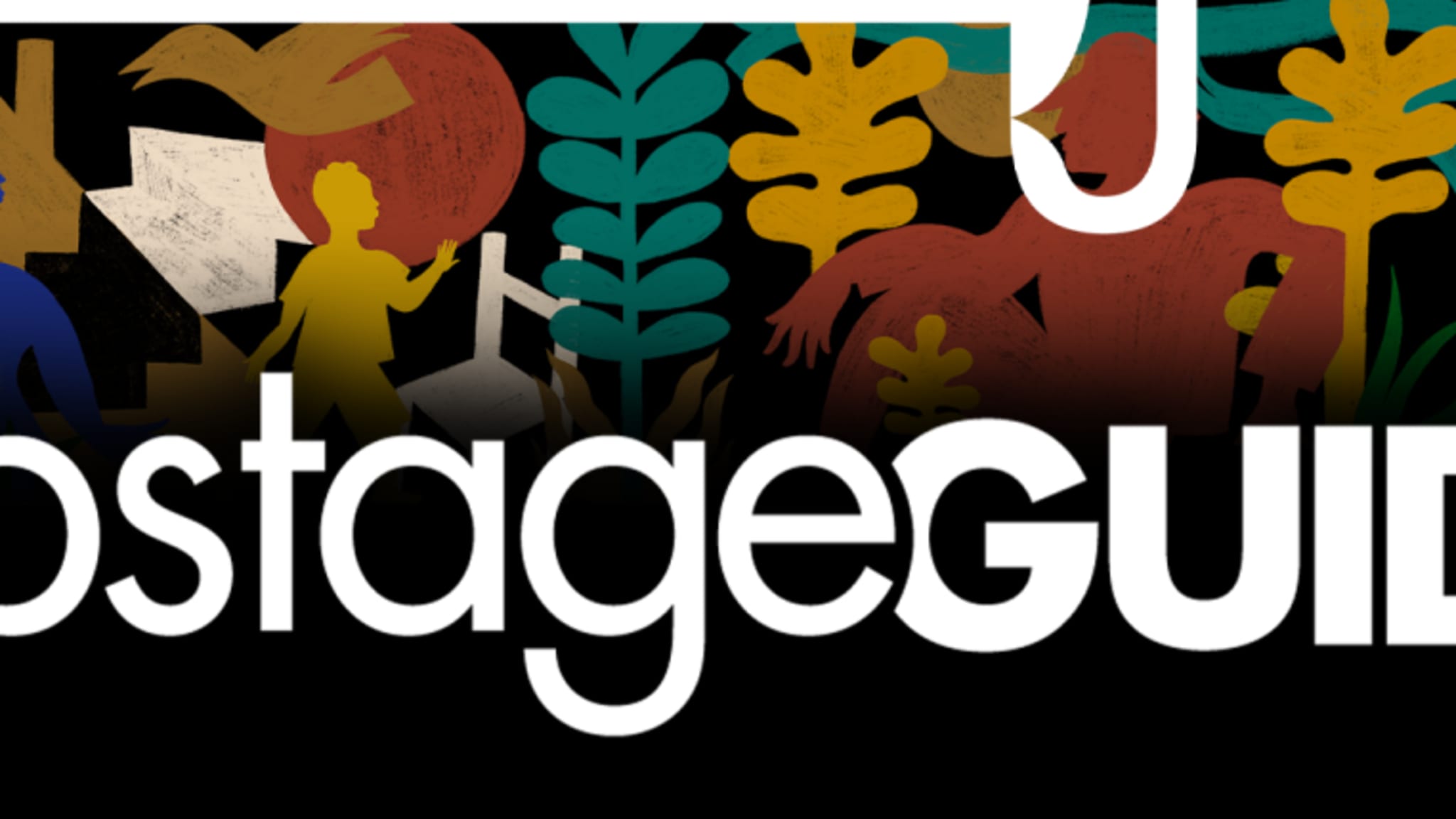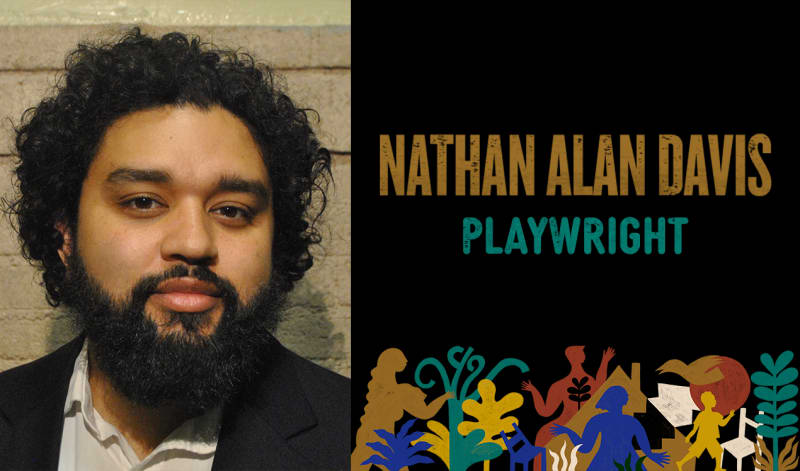Teaching artist Leah Reddy spoke with playwright Nathan Alan Davis about The Refuge Plays.
Leah Reddy: What is your theatre origin story?
Nathan Alan Davis: I grew up in a family that was very artistically inclined. My mother was a mime for a long period of time and my father was an actor in his early adulthood. I grew up around the arts. I grew up in Rockford, Illinois, which is not a big city. It doesn't have a lot of arts institutions, but whatever theatre stuff was happening in Rockford, I was around it.
I just liked being around the stage. Initially, I was an actor and I went to school for acting as an undergrad. But really, I just wanted to be around where theatre was happening. When I was able to merge writing and theatre, that unlocked new possibilities for me.
LR: What educational or professional experiences influenced you?
NAD: I went to Spectrum School, a private school from kindergarten through middle school that was very flexible in terms of its educational approach. I was able to go there without paying tuition because my mother taught there, and part of the reason she taught there was because she wanted my sister and I to be able to go there.
One of the things that I sort of absorbed growing up, both at home and in school, is the idea that learning is joyful, that the world is full of exciting things to discover and uncover. And that's something that stayed with me. I've had so many mentors along the way that I feel like, to even start to name them, it would be a long list. But I can say in terms of playwriting, Ken Weitzman, who was my mentor and teacher in graduate school at Indiana University, was a huge influence on me. And then later I got the opportunity to study with Marsha Norman and Chris Durang at Julliard, and they were big influences. I found mentorship and influences from a lot of different places, and it definitely started with my parents.
LR: What inspired The Refuge Plays?
NAD: I was thinking about death. I was thinking about the inevitability of death. The fact that it's the assured thing that is going to happen to everybody and we've been dealing with it for as long as we've been human beings, and yet we often don’t know how to approach it or how to process it.
I've always had an understanding of death from my religious faith, which is the Bahá'í faith, that the world beyond is really close to us and that this life is the beginning of an eternal journey. Death is not necessarily seen as an entirely tragic thing, but a natural step in evolution of our spirit. So thinking about death and the life beyond was part of the initial impulse. The characters emerged as I was writing and I listened to them. I followed the lead of where the story seemed to be going. It became a much larger project than I initially imagined.
LR: In previous interviews you’ve talked about the mystery inherent in the art-making process. Could you speak about that aspect of playwriting versus the process of sitting down and making yourself write?
NAD: When we're creating art, we're trying to be a channel for something that's much larger than us. There's a need for a combination of audaciousness and humility to bring that about. You have to be audacious enough or confident enough to believe that you can take on huge ideas and themes and make them legible for an audience, make them meaningful and compelling and entertaining. Sometimes you have to let go of your initial idea of what a thing is going to be and find something deeper. It means listening to your impulses and being open to where the journey takes you, while also implementing craft to shape the writing in a way that will allow it to be understood and received.
LR: I'm curious about the setting of The Refuge Plays. It’s set in Illinois, your home state. What can you tell us about how you chose the setting and what it means to you?
NAD: The Refuge Plays is set in southern Illinois. I never actually personally lived in southern Illinois, but my father's side of the family did live there for a time before they ended up immigrating to Chicago. That area has a certain pull for me because I know that my people came through there.
Our relationship with nature is really important. I'm not an extremely outdoorsy kind of person. I don't hunt or fish or anything like that. I don't know that I could survive in the woods. So, it's not about that exactly. It’s about wanting to have a real connection to the land. That's always been an important part of my understanding of the world.
LR: What advice do you have for young or emerging playwrights?
NAD: Being a playwright is a lifelong commitment. You’re going to have ups and downs and you're going to have periods of time where you feel successful and periods of time when you don’t. Continuing to acquire knowledge and increase your understanding of the world is the most important thing that you can do. You might not always be able to predict the effects this will have on your work. But the things that you put into your mind, you digest them, you reflect on them, and they help to clarify your understanding. What do you want to put into your mind? What rings true and what doesn’t? Be aware that that's part of the discipline [of playwriting]. We have a big responsibility as playwrights, so it's important that we are equipped to execute it in the best way we can.
Published on September 21, 2023.




